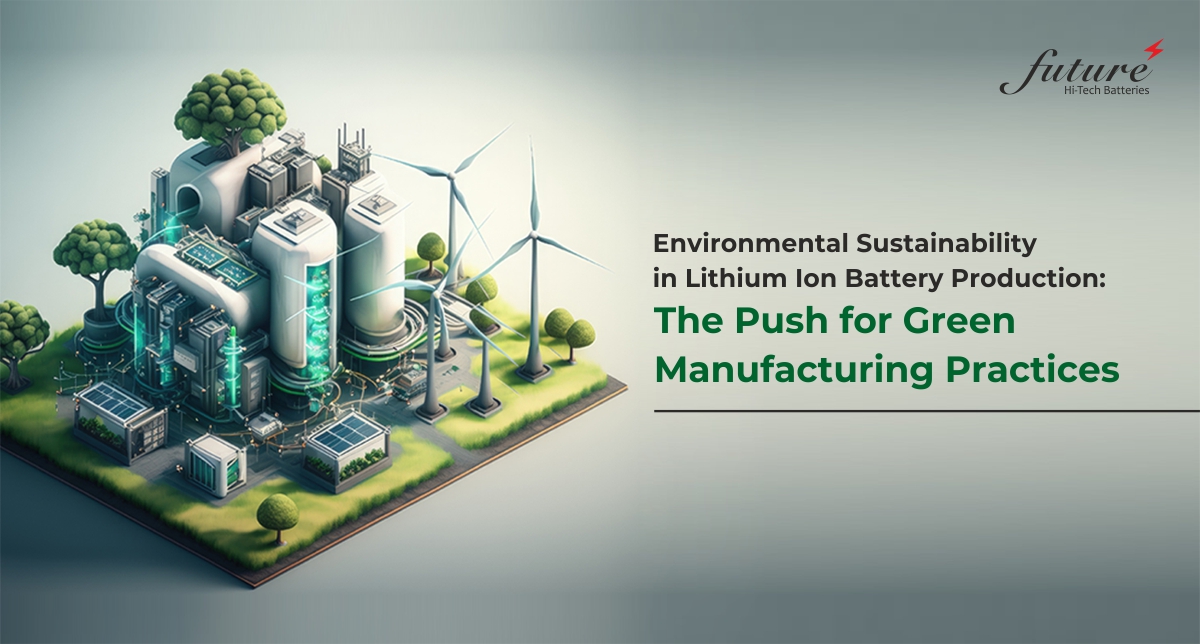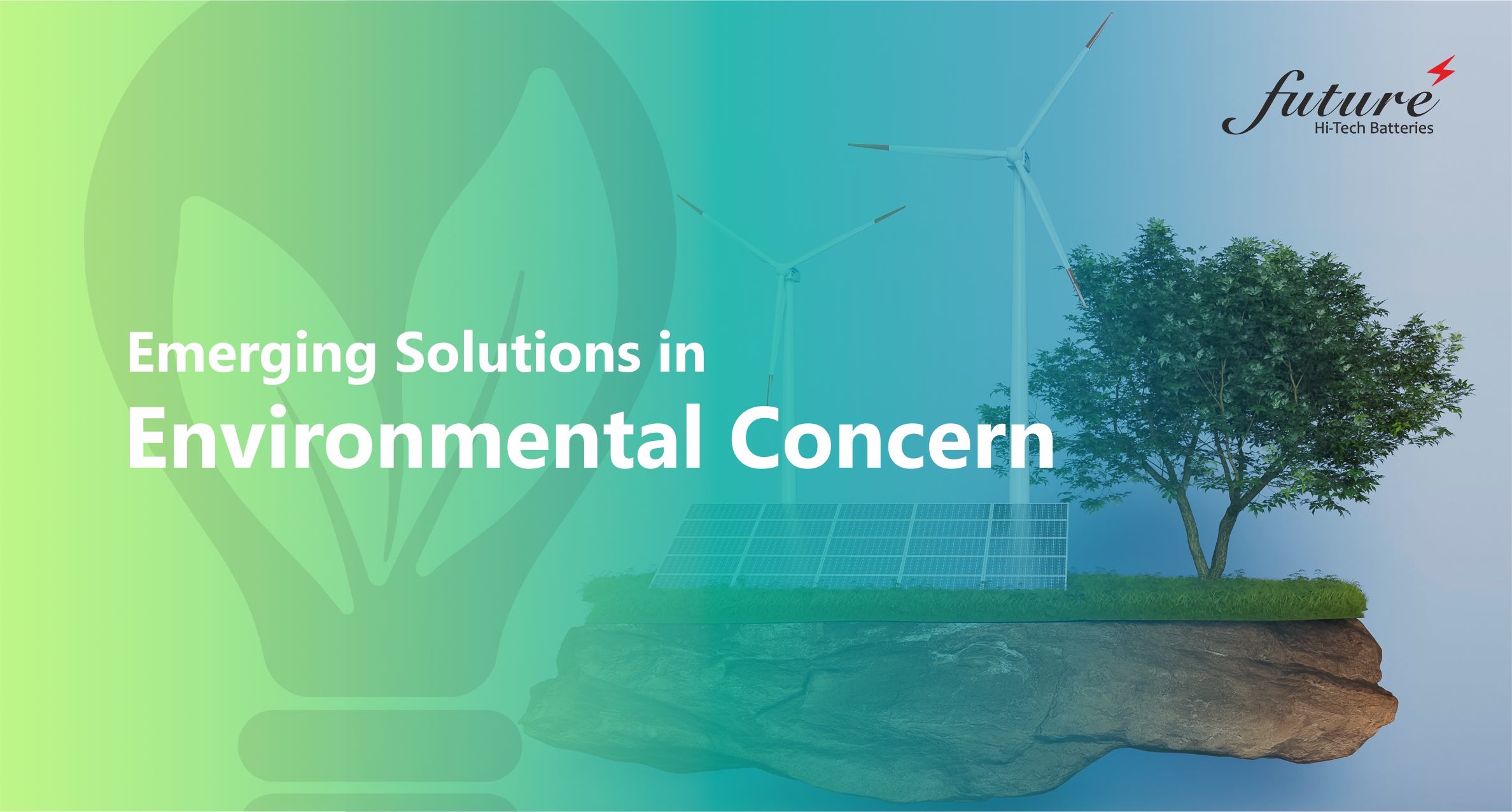TThe growth and omnipresence of lithium-ion batteries in the current industrial landscape is undeniable. From your digital devices to your personal and private vehicles, these batteries have their hold over every market! Moreover, the devices used to store renewable energy also see a wide spectrum use of lithium ion batteries. Despite their growing demand and the convenience they offer, Lithium ion battery production has its concerns; the significant one is their impact on the environment.
About Lithium Ion Battery Production
Lithium-ion batteries are the backbone of the green revolution with their focus on renewable electricity and green automobile sectors. However, the traditional production of these batteries is through methodologies that are rather environmentally unfriendly. These batteries have high energy consumption, making them a source of non-renewable resources, and waste production.
Due to increasing environmental pressures, there are changes in the manufacturing strategy and the move towards green manufacturing. Similarly, the battery manufacturers are redesigning their procedures for Lithium-ion battery production to pose lesser impact on the environment. They do it by producing their power from renewable energy sources and then doing a loop and getting their materials from sustainable sources.
In this article, we will explore the challenges in eco-conscious lithium-ion battery production and the initiatives to build a sustainable future with these batteries.
Lithium Ion Battery Production and Environmental Concerns
Despite their significance in building a cleaner and more efficient future, there are environmentally harmful ways of making batteries. Lithium-ion batteries hold the power to cause serious environmental damage. From the mining of raw materials to energy-consuming processes of manufacture, to how they dispose of waste, everything has a direct impact on the environment. Moreover, if they use hazardous chemicals, how they deal with them also decides their carbon footprints.
In line with the continuous advance in technology, the future is all about electrification and sustainability so are the concerns revolving around battery production. This blog analyses how batteries are central to our lives and the environment or lack of one. In addition, it provides solutions linked to their production, which highlights the growth of sustainable solutions across the sector.
The Energy-Intensive Nature of Lithium Ion Battery Production
You can rightfully say that lithium-ion battery production is energy-consuming as several processes in the manufacturing of the said batteries require a lot of power. The largest portion of energy is used while preparing electrodes. Moreover, the preparation of electrolytes and the formation of cells used in batteries also increase energy demand. These energy demands are due to the required regulation of temperature and humidity during the cell assembly.
Indeed, more than anything else, the importance of this energy intensity cannot be overemphasized. Therefore, high energy requirements also raise production costs besides contributing to higher carbon emissions especially where energy is obtained from fossil energies used in manufacturing factories.
Recycling and Second-Life Applications
Recycling and second-life applications are important sub-sectors of lithium-ion battery production. It refers to the reconditioning of batteries and collection together with recycling with the purpose of recycling elements like lithium, cobalt, and nickel. These materials can also be recycled back to other manufacturing and minimize the extraction of raw materials to decrease the environmental impacts.
Second-life applications are often used in batteries, in addition to those in automobiles or apparatuses. Therefore, when batteries do not meet the demands of these applications any longer, all is not lost and the batteries can instead be used for stationary energy storage for homes or businesses. This recycling in Lithium ion battery production not only cuts the loss but also saves capital.
Consumer Awareness and Responsibility In Lithium Ion Battery Production
It is significant that the consumer changes his or her knowledge and takes responsibility for the manufacture of the lithium-ion battery for environmental impact. They are enlightened over time about the environmental consequences of the product hence they can select environmentally friendly batteries and products. However, consumers who demand or provide their support to sustainable products are the pushers of market forces that compel producers to change for the environmentally friendly.
Additionally, consumers are also expected to know how to use their batteries rightly or even choose environmentally friendly products. Pick products that are designed to have a long battery life, and properly dispose of the batteries when they are no longer useful. Furthermore, avoid producing more gadgets than needed that will just be disposed of in the long run. It helps to form a greater number of responsibly committed lithium-ion battery manufacturers.
Conclusion
In conclusion, the transition to a greener lithium-ion battery industry remains the way forward towards a more sustainable future. The key takeaways from this exploration of environmental sustainability in battery production highlight several critical aspects:
- Environmental Impact: Lithium-ion batteries have been known to be an environmental concern in matters concerning energy consumption while in manufacturing in the extraction of their materials and also in the generation of their wastes.
- Sustainable Transition: Companies today are engaging in green manufacturing that involves being sensitive to issues such as ethics in procurement, energy, recycling, and water conservation.
- Consumer Role: The consumer’s awareness and responsible consumption of energy make a vital contribution to the demand for green batteries and change in practices in the market.
- Circular Economy: Using products for one or more other purposes also saves resources and adds to the possibilities of putting resources use into ‘closed loop use’.
- Ethical Sourcing and Supply Chains: The use of batteries can also be completely sustainable if the sourcing and the manufacturing of the battering supply chains are established by proper ethical means.
Thus, having adopted these changes it is possible to reduce the ecological impact that is characteristic of the lithium-ion battery industry and, thereby, decrease the carbon footprint. Furthermore, it helps to make the world a better place! The shift towards green manufacturing practices is a requirement of organizational development. It is imperative for the future to address the need for our electrified and greener overlying global community. Also, it brings a better and more delicious future regarding batteries’ use in compliance with the earth’s conditions.
Follow us on LinkedIn.
Lorem ipsum dolor sit amet, nec in adipiscing purus luctus, urna pellentesque fringilla vel, non sed arcu integer, mauris ullamcorper ante ut non torquent.










Your Comment Please